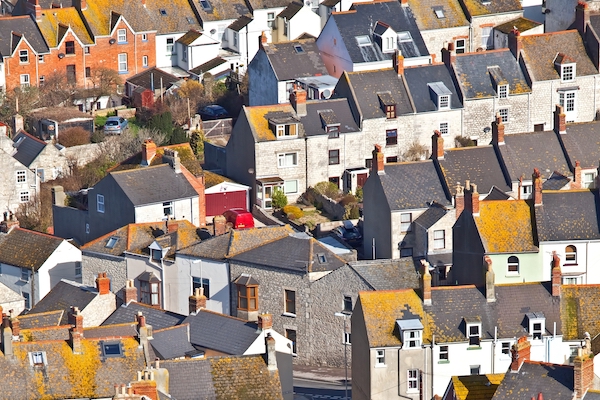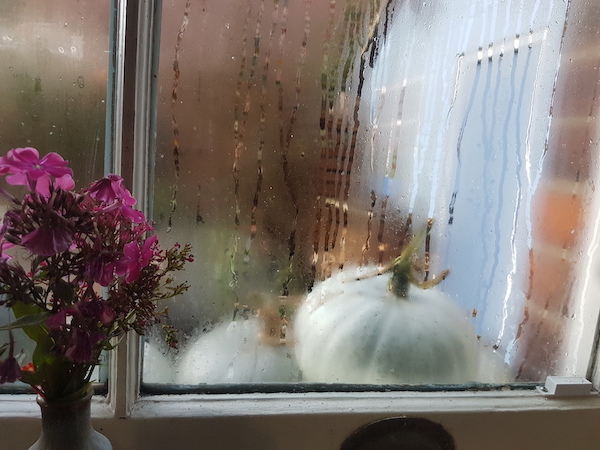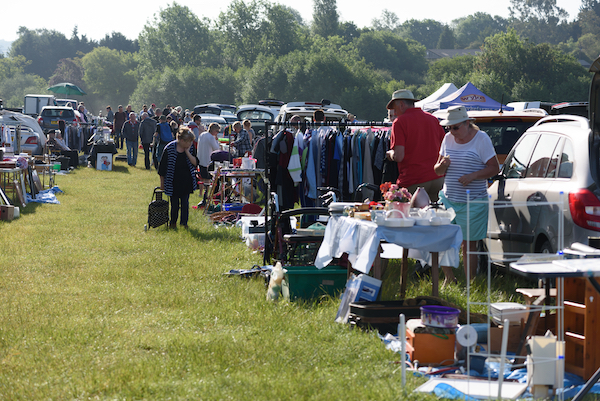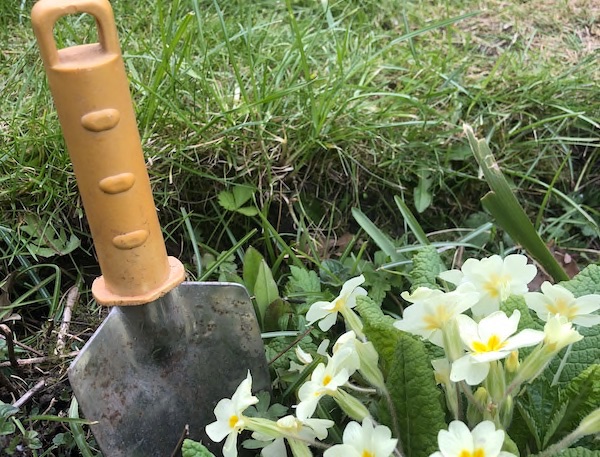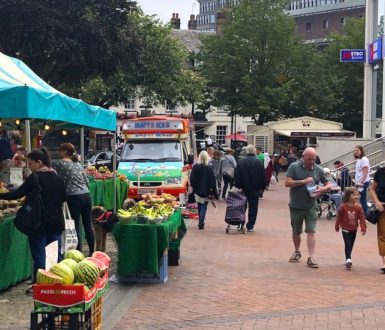Everything you need to know about finding a home in Britain and maintaining it, including heating, electricity, water and repairs. If you have only recently moved to this country, take a look at the Moving to Britain page for information about supermarkets, clothes stores, bank accounts and more.
The regular bills you will probably have to pay for a home are:
- Rent/mortgage
- Council tax
- TV license
- Mobile phone/home phone
- Broadband
- Water
- Electricity
- Gas or oil (if you have it at your home)
- Contents insurance (for the items in your home)
- Service charges and ground rent (leasehold homes)
- Buildings insurance (if you own your home)
You need to contact your water, electricity and gas suppliers with the meter readings as soon as you move into a property.
If you are with a partner, it is good to get some bills in their name as well (or in joint names) because utility bills are often used as a form of identity.
There are many furniture shops in Britain, but here is a list of stores that sell both furniture and accessories (like towels, bedding, baby items etc.) All will deliver to your home, and all have shops around the country too. Some are more expensive than others.
If you are happy to buy second-hand items, read our blog post about good places.
You need ‘contents insurance’. This will insure anything not attached to the building you live in (for example furniture, clothing, electrical items and jewellery).
Be aware that many companies will not insure homes left empty for more than 60 days. Very expensive items usually need extra insurance. Items you take outside the home (like bicycles or laptops) often need extra insurance too, called ‘personal possessions cover’. Speak to your insurance company and examine the policy carefully.
- The Money Advice Service website explains more about contents insurance.
British people can feel shy about saying hello to new people so don’t be surprised if you never see your neighbours. However, some areas are friendlier than others. Sometimes, the neighbours will come and say hello when you move in.
If you would like to meet your neighbours, it is often best to go and introduce yourself. If you are shy about doing this, a good time to talk to people is when they are in the area outside their house, for example cleaning the car.
In the past, most people in Britain had their milk delivered to their doorstep in glass bottles that you wash and return. Even today, there are still milk delivery companies. It is sometimes milk from local cows. The milk might cost more than supermarket milk, but you usually get your delivery by 7am and there are lots of other products you can order too.
There are some nationwide companies and some local companies. If you really want glass, check before you sign up because some companies use plastic bottles that you throw away.
Search online for home milk delivery near you.
If you are completely new to gardening in Britain, read our gardening blog page to help get you started.
There are many gardening websites, but if you want someone to help you, local gardening societies are usually very happy to have new members.
It is possible to rent areas of land for growing fruit and vegetables. These are known as allotments.
Most allotments are owned by the council that looks after your village, town, city or city borough. Sometimes there are also private allotment areas too. To find allotments near you, it is usually quickest to search online for ‘allotment’ and the name of the area you live in.
Be aware that allotments are popular and there might be a long waiting list and you might not get one for several years (especially in cities).It is a good idea to check the area before you join the list – some areas suffer from vandalism or don’t have any toilets, piped water or parking.
- In London, the London Allotments website has more information.
Renting
& buying
Energy
& water
Council tax pays for services supplied by local government. This includes waste removal, local roads, pavements, police and fire services, street lighting, community services, playgrounds and parks. The amount you pay depends on the council area you live in, the value of your home and the number of adults living there.
Check with your landlord. It is normal for the tenant to pay.
Any home with two (or more) adults needs to pay full council tax. Some adults don’t usually need to pay the full amount: this includes students, apprentices, student nurses, British Council-registered foreign language assistants, diplomats or people with a severe mental disability.
Contact your local council to find out more.
- Find your local council via the main government website.
When you move into your home, you need to contact the Council Tax department of your local council. They will ask you how many adults will be living there, and the name and address of your landlord or the previous owner. They will also ask if you want to apply for discounts.
You can pay council tax online, by direct debit, over the phone or at the Post Office. Check your local council website under ‘Council Tax’ for more information.
- Find your local council via the main government website.
Your home will be in a council tax band, from A to H (it is a bit different in Wales).
A is the cheapest band. You can find out which band your property is in by using your postcode on the government’s Valuation Office Agency website.
Different councils charge different amounts for the same band, so to find the amount you need to pay you will need to check on your local council website. The average amount is £1,800 a year.
People living alone, students and unpaid/paid carers can usually ask for a discount.
Some people on very low incomes can apply for help paying the bill (council tax support or reduction). You must not apply for this if your visa says you have No Recourse to Public Funds.
Some local councils also give discounts for second homes or empty properties.
Contact your local council to get more details.
- Find your local council via the main government website.
Some councils offer translations into some other languages, check their website for information. There should also be versions available for people with sight problems.
- Find your local council via the main government website.
The best way to connect to the internet at home is via fixed broadband using a small box called a router. Broadband providers can also supply home phones, mobile phones and TV packages, if you want them.
There are lots of different broadband providers. Some provide faster broadband than others. ‘Fibre broadband’ uses optic fibre and gives the fastest service, but it is more expensive.
You might have to pay for line rental and connection too. The Broadband Choices website can help you compare prices and speeds for your area.
You don’t always need a long contract. Some providers will let you pay for one month at a time.
- An alternative to using broadband is by using your mobile phone as a wifi hotspot. This uses a lot of mobile phone data, but you can buy contracts or bundles with unlimited data. This can be a good choice if you live in a shared house.
It can take 2-3 weeks to be connected to fixed broadband. This is because the connection must be made by a phone engineer from BT Openreach (which manages the wired phone network). Connection is only possible on set dates.
You will be asked to choose a date when you start a contract with a new broadband provider.
When you move house, you can usually take your broadband provider with you. Contact them about 3 weeks before you leave to make sure you are set up in your new property as soon as possible.
The speed of your broadband depends on where you live. Most areas have optic fibre broadband, but not all. You can also choose different speeds of broadband service.
The Broadband Choices website can help you compare speeds for your area.
If there is an optic fibre service, be aware it usually only goes as far as a local connection box. The wire from the connection box to your property will probably be copper (under 15% of properties have fibre right to the property). If you live far from the connection box, this may make your broadband slow, even with fibre broadband.
If you have broadband speeds of under 10Mbps, contact your supplier. By law, 10Mbps is the minimum they must provide.
If you are using wifi at home, you may find that the connection in some rooms is worse than others. This can be because of where the broadband router is and is made worse if your home house has solid walls and thick wooden doors.
Moving the router up high and opening doors can help. You can also buy special wifi boosters that you plug into your electrical sockets.
Most homes use copper telephone wiring to connect your broadband internet and home phone to the national network. Renting this wiring (the ‘line’) is sometimes an extra cost on top of your broadband and home phone package.
You don’t need line rental everywhere. In some places you can use Virgin Media’s fast cable network.
In rural areas you can choose wireless broadband. If you are somewhere really remote, satellite broadband is another option. Read more about satellite options on the Broadband Choices website.
A home phone (or landline phone) uses wiring from the main phone network. Because there is no national identity register, your home phone number shows you have a permanent home. This can help you get a bank account, register with a doctor or get a mobile phone contract. You will normally get a home phone when you arrange broadband internet access.
These days, most home phones are pay-as-you-go. This means you pay every time you make a call, which can be quite expensive. If you want to make a lot of home phone calls, look for packages where you pay a monthly rate. After that most calls are free.
Be aware that landline phone numbers are linked to the area you live in, so you might not be able to use the same number if you move home.
The standard dialing tone on a landline phone is a single note. If you hear two notes you have a message waiting. You can usually access the message by dialing 1571 (though it can be different, depending on your phone provider).
You can usually also find out the phone number of the last person who called you if you dial 1471.
Power cuts in the UK are fairly unusual and most are solved within 4 hours. However, during longer power cuts it might become difficult to access emergency help.
- During power cuts, your landline phone might not work so you will need an emergency back-up, for example a mobile phone.
- Make sure you have an emergency power pack for your mobile phone or use the charging lead in your car. Dialling the emergency 999 number will link the phone to any available network. This should mean you can get help, even if your own phone network has problems.
- In very rural or hilly areas, mobile phone reception can be unreliable. During a power cut you might not be able to get any mobile phone reception. Contact BT (which manages the phone network) to ask about an emergency battery for your landline phone.
Pay-as-you-go means you pay for phone or broadband services before you use them. It is the easiest way to pay for these services because you don’t need to prove your financial history or identity.
You can buy pay-as-you-go mobile phone SIM cards in many shops and supermarkets.
A British phone number isn’t just a random string of numbers. There’s a lot of information there, if you know what you are looking for. The initial code affects how much the call will cost from a landline or mobile.
- All landline phone numbers have an area code (3- 5 digits, sometimes called an STD code) and the main phone number (between 5 and 8 digits). People calling from a landline in the same area don’t usually need to include the area code when they dial. Bigger towns and cities have longer main numbers and shorter area codes. They all start with 01 or 02.
Examples:
(01234) 56789 – a rural area
(0112) 345678 – a city
(020) 12345678 – London
- Mobile phone numbers all start with 07 and are 11 digits long. They are usually written in one group of 5 digits, then a group of 6 digits (or 2 groups of 3 digits), like this:
07123 456789
07123 456 789
- ‘Local rate’ calls start with 03. These numbers cost the same as 01 and 02 numbers, but don’t refer to any particular town or city.
- Premium telephone numbers start with 09 and can cost up to £3.60 per minute. Be aware some online directories use 09 numbers to link you to services that actually have a 03 or 08 number. It is often better to go to the website of the service and look for a phone number there.
- Free telephone numbers start 0800 or 0808.
- ‘Business rate’ numbers start 084 or 087. These calls are more expensive than local rate, especially from a mobile phone.
Read more about telephone number codes and charges on the main government website.
You must have a TV licence if you want to watch live TV on any device, or use BBC iPlayer. One licence covers everyone in your home (unless you live in a shared house where people rent rooms separately).
A TV licence costs just over £150 a year. People over 75 can ask for a free TV licence. Blind people pay 50%.
The licence money pays for BBC TV and radio services here and across the world. You might have to pay a fine of £1,000 if you don’t have a licence.
You don’t need a licence to watch YouTube, DVDs and videos, or online catch-up TV that is not from the BBC (for example ITV or Channel 4). You will need to tell TV Licensing that you don’t need a licence.
- It’s easy to buy a licence online on the TV Licensing website. You can also buy them from any shop with a PayPoint sign. To find your nearest, see the PayPoint website.
Mail is usually delivered directly to your home from Monday to Saturday. This happens even if you live out in the countryside – Royal Mail delivers to over 27 million homes each day.
It is possible to use a PO box if you do not want mail sent to your home. Mail will be sent to your local mail delivery office and you will need to collect it. This service costs about £31 a month with Royal Mail, although there are also some other providers. See the Royal Mail website for details of their service.
The most important aspect of your address is your postcode. This because the postcode is unique to your part of the street.
Postcodes are always written in two parts with a gap in the middle, like this: WC1 2DB. The first part is the town or city area, the second part is the street.
- If you know the address, but not the postcode, you can find it on the Royal Mail website.
For letters with a sender’s address on the back, you can write RETURN TO SENDER, NOT KNOWN AT THIS ADDRESS and post them (you don’t need to add a new stamp). It is illegal to open letters that are not addressed to you.
Yes. The service is called KeepSafe and you can have your mail held for up to 100 days. You can apply online at least 5 days before you go away. There is a charge.
- Details of KeepSafe are on the Royal Mail website.
You can set up a redirection with Royal Mail. You have to pay for it. You can redirect mail to any UK or overseas address for 3, 6 or 12 months.
- Go to the Royal Mail website for more details.
Domestic letters go with Royal Mail. You can buy stamps from post offices and many shops. Be aware that the price of sending the letter depends on the size and thickness of the letter, as well as the weight. Only small, thin letters get the cheapest price.
The Royal Mail website offers a useful price finder that will tell you how much your letter will cost.
There are many options if you want to send a parcel.
The most common is Royal Mail (or Parcelforce, for heavy items). Parcels are sent via a post office. It is also possible to pay the postage online and have the parcel collected from your home using the Parcel Collect service. Go to the Royal Mail website for more information.
For other companies, you can pay for postage online or via an app, then leave your parcel at a local shop where it will be collected and sent on.
Companies include:
Some things must not be sent through the mail. For example, Royal Mail/Parcelforce has rules about several different items, including common household items like matches, strong alcoholic drinks (over 25% ABV), pesticides, party poppers, cigarette lighters and lithium phone batteries. Check the rules with other providers.
- Read about restricted items on the Royal Mail website (PDF).
Charges are usually payable on items that come through the mail. This includes:
- Items sent as a gift
- Second hand or antique items
- New items
- Items for resale
You do not usually need to pay any charges on gifts up to £39 in value.
Letters and documents do not usually have to pay any charges.
The rules are more complicated for other items. See the main government website for details.
Sometimes you might get a letter saying ‘This is not a circular’ printed on the envelope. A circular is another word for marketing material. A letter that is not a circular is therefore important and needs to be opened quickly.
You need to split up your waste so that some of it can be recycled. Bins are colour-coded, according to the waste you can put in them.
The waste that can be recycled depends on your local council. Most councils collect paper, card, plastic drinks bottles and metal food cans. Some collect food waste, garden waste and glass.
Plastic and metal packaging must be cleaned before being placed in the recycling bins. You cannot recycle any packaging covered in food (this includes pizza boxes).
If you don’t know which day your bins are collected, have a look at your local council website (it is usually in the ‘Waste & Recycling’ section). Be aware that many councils only collect some types of waste every 2-3 weeks.
- Find your local council via the main government website.
If you have a car, you can take the items to your local council’s waste disposal site. Be aware that waste disposal sites can have many different names including: tip, tidy tip, dump or household waste recycling site.
If you don’t have a car, have a look on your local council website. Some councils will collect large (or ‘bulky’) items, but you will need to ask them. You might have to pay for this.
Some retailers will collect your old item when you buy a new one (for example beds, fridges, cookers, mattresses).
If you want to pay a company to take away waste items (for example by hiring a skip), make sure they have a waste carrier’s license and ask for a waste transfer note. This is to prevent people breaking the law by simply dumping items in the countryside and causing pollution and damage to the environment.
Be aware that dumping items on private property or at the side of a road (known as ‘flytipping’) is illegal. It has a maximum fine of £50,000.
- Find your local council via the main government website.
If you live in a Conservation Area or the tree has a Tree Preservation Order (TPO) you must first get permission from your local council before carrying out works to trees on your property.
There might also be rules in very new housing areas (fewer than 5 years old). If your property is rented, you must ask the landlord.
Speak to your neighbour if their tree or bush is causing you a problem.
- Read more about tree preservation and conservation areas on the main government website.
A bonfire (a fire of garden wood and plants) is allowed on your property, but you are not allowed to have thick smoke going across a road. It is polite to make sure neighbours do not have washing out and are not in their gardens.
Burning other types of waste is not allowed in places where it could harm others.
If you have many bonfires and they annoy your neighbours, you could get fined up to £5,000. Read more on the main government website.
You can let off fireworks on your own property on any day of the year, between 07.00 and 23.00. The exceptions to this rule are:
- Bonfire Night (November 5): from 07.00-00.00
- New Year’s Eve (December 31): from 07.00-01.00
- Diwali: from 07.00-01.00
- Chinese New Year: from 07.00-01.00
Be aware that letting fireworks off in public places is against the law. Breaking the law could lead to a fine of £5,000.
If you cause problems for your neighbours, that could also be against the law. Be considerate towards elderly neighbours or those with dogs (because they can be very stressed by loud bangs).
- Read more about firework laws on the main government website.
If you want to walk around without clothes, it is best to choose a part of the garden where no one can see you, or make a private area with screens.
If this is not possible, ask your neighbours if they mind seeing you naked or topless.
The law says you must not cause “alarm, distress or outrage” and even in your own garden you can be charged with ‘indecent exposure’, so it is a good idea to make sure no-one nearby is upset.
There are rules in many places about noise at night between 11pm and 7am. Loudspeakers in the street are banned between 9pm and 8am. See your local council website for the rules near you.
- Find your local council via the main government website.
Many of old houses are badly insulated and draughty. There is a lot of ventilation, which helps prevent condensation. However, it also means they are expensive to heat. It is not unusual for people in old houses to live with an indoor temperature of about 18°C in winter (or maybe a lot less, especially in the morning!). Read our blog post about 7 clever ways to stay warm
British people (especially from the middle class and upper class) are often proud to wait until mid-October or even November before they switch on their heating.
Be aware that people with very big houses might only heat a few rooms in the winter (and that might not include the bedrooms!) Pack a warm jumper and socks if you are invited to stay…
If you see black mould growing on walls, in cupboards or the edges of windows, you have too much moisture in the air of your home or an area where water is soaking through the wall, for example from a broken drainpipe. Sometimes there is white or green mould (this is more common on fabric).
If there is a lot of mould, it can cause breathing problems. Wipe all the areas with mould killer or it will keep coming back. Throw your cloth away so you don’t spread the mould. Take a look outside for any potential problems that can be fixed.
Mould often grows when the moisture in the air of your home settles on cold surfaces, for example windows and outer walls. Try these tips to reduce the condensation in your home.
You can buy rat/mouse traps and poison from hardware shops. If you need stronger poison, you will need to contact a pest control professional. Ask you local council first, because some local councils offer this service for free. In most places you will need to pay to a private company.
- Find your local council via the main government website.
For creatures like fleas, wasps or bedbugs (Cimex lectularius), contact your local council because they might offer a pest control service for free.
- Find your local council via the main government website.
If you have a swarm of honeybees (Apis mellifera), contact the British Beekeeping Association. They will be happy to help you and will remove the swarm.
Radon is a radioactive gas that can cause lung cancer. It comes from the rocks in the ground. It can be a problem in some areas of Britain (like Wales, the South West and Midlands) because it can get trapped in buildings.
- Anyone living in an area with high levels of radon should have a radon detector in their home. Find out more on the UK radon website.
In an emergency, call 999 on your phone. For non-emergencies, contact your local fire service via phone or email. In England, this will usually be a county fire service.
You can find links to all fire and rescue services on the National Fire Chiefs website.
If there is a danger to life, call 999 on your phone. Otherwise, look at your local council website by searching for ‘flood’. It should be able to give you details about who to contact and where to get help.
It is the responsibility of the property owner to protect against floods. If you want to know if your home is at risk of flooding, the main government website can help.
If you are at risk, you can create your own flood preparation plan using a tool on the government’s Prepare for Flooding webpage.
You can buy flood protection products and sandbags from DIY shops and builders merchants. Sometimes councils give sandbags to people in emergencies, but this is rare. The main government website has more information about how to use sandbags effectively.
If you live in a rented property, you need to ask your landlord before you do any repairs.
If you own the home, there is usually not a problem. But be aware:
- If you live in a listed house or live in a Conservation Area you might need special permission from your local council (even sometimes for painting your front door a different colour!).
- If you have a leasehold property, check what it says in the lease.
Also be aware:
- Old bricks, tiles, baths, taps and pipes use Imperial sizes. You might need to go to a specialist supplier to get the correct replacement.
- If you buy wood, the marked size is rarely the actual size (because of the finish/moisture content). Measure carefully before cutting.
- Work to gas and oil systems must use a specialist. Most electrical work also needs a specialist.
Some traditional repair books show amounts in yards, which is an Imperial measurement. A yard (yd) is nearly a metre (1 yard = 0.9m).
Some traditional products are sold using Imperial measurements. An inch is 2.5cm (about the same length as the top part of your thumb). There are 12 inches to 1 foot (30.5cm).
British people often say their height in feet and inches. The average woman in the UK is 5 feet and 3 inches (161.6cm), which could also be written as:
- 5ft 3in
- 5’3”
A lot of large projects around the home need approval from the local council’s Building Control department. This includes replacing windows, knocking down walls or extending buildings. This is to make sure homes stay safe and well built.
You might also need planning permission. Planning permission is designed to preserve the character of the area and reduce environmental impact. Britain has some of the strictest planning laws in the world (even the royal family has to follow them).
Make sure you have checked what you are allowed to do, especially if your house is listed, or in a conservation area. Otherwise you might have to pay a fine, or remove all the changes.
If your home is leasehold, check the terms of the lease to see what you are allowed to do.
The Planning Portal website is very useful and explains building control and planning permission in detail. It also gives details of what you need for many common projects.
Yes, there are rules about noise. The rules vary from place to place, so look on your local council website. For example, some towns and cities do not allow noise at weekends. Sometimes it is best just to speak to the neighbours first.
- Find your local council via the main government website.
A government scheme called TrustMark has a list of qualified people to work on all aspects of your home. This could be for a small repair or a bigger job, for example a new heating system or home extension. Unlike other trader directories, the TrustMark website actually checks the work of businesses on the register for technical competence, good customer service and good trading practices. For small repairs, look for a ‘handyman’.
Another option is the Federation of Master Builders, which is a professional organization that promotes good building work. Search the FMB member database.
You are allowed to change the plugs on your electrical items. Most other electrical work in the home must be done by a registered electrician.
The Electrical Safety First website has lots of information about the safe use of electricity, how to prevent fires and advice for tenants. The website also has a list of registered electricians. These people work to government safety standards and have the right insurance.
You can find a lot of information and advice about basic plumbing repairs on the WaterSafe website.
Be aware that old houses often have baths and pipes in Imperial sizes (inches), but most items on sale are in in Metric sizes (cm). If you are replacing taps or baths, make sure you choose the right size.
The WaterSafe website has a list of approved plumbers that you can search by postcode. These plumbers are fully qualified and insured. Their business will also be regularly checked.
You are only allowed to do simple tasks to gas appliances, for example changing a cooker control knob.
Because of the risk of explosion, it is forbidden to disturb the gas pipework or do anything that can affect the flow of gas. For these repairs, you must contact a Gas Safe registered engineer.
You can find a list of gas and LPG engineers near you on the UK Gas Safe Register website. Engineers on this register must pass regular exams. The exams vary, so check the engineer is qualified to do the gas job you need.
Because heating oil is flammable, it is dangerous to try to repair oil tanks or oil pipes yourself.
Leaking heating oil can cause serious environmental pollution. The problem must be fixed immediately or you might have to pay a large fine. It is a good idea to buy an oil spill kit to keep in the house in case of an oil leak.
If you have any problems, call your oil supply company for advice.
You can also contact an OFTEC-registered engineer. Engineers on the OFTEC trade association register are trained and regularly inspected.

